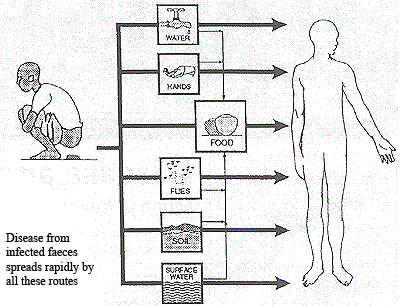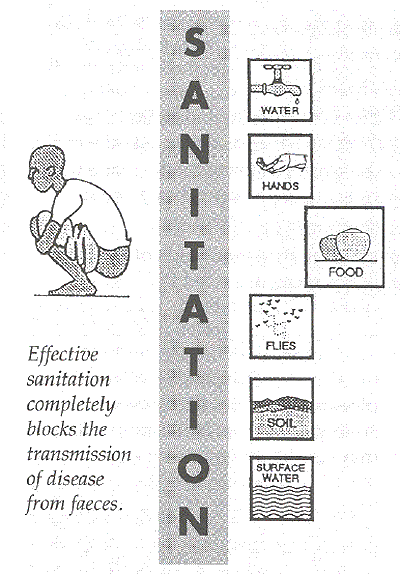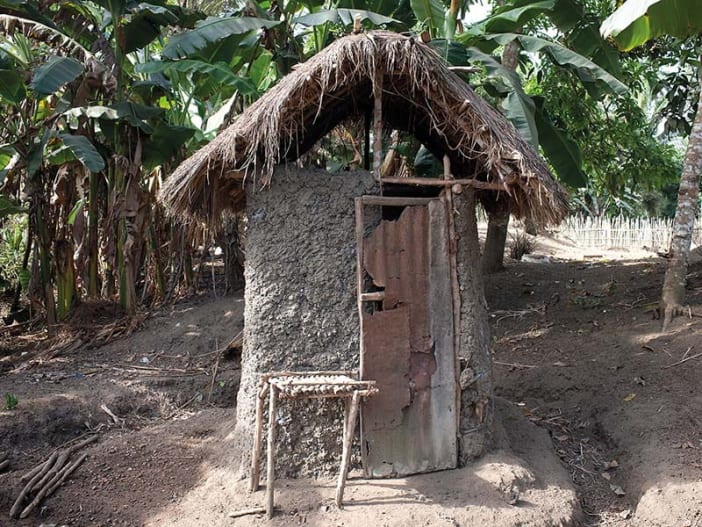Action in low-income communities
by Professor John Pickford of the Water, Engineering and Development Centre at Loughborough University of Technology.
It is often said that much of the disease in low-income countries is caused by bad water. Water-related diseases, so we are told, cause the deaths of many millions of children each year and occupy most of the hospital beds in developing countries. Diarrhoea in its various forms is a killer, as well as causing pain and suffering.
Water quality is unfairly blamed for all these problems. However, nearly all so-called water-carried diseases, from quick-killing cholera to uncomfortable stomach-ache, are really spread through poor hygiene and sanitation practices. Lack of sanitation may mean that water is contaminated but these diseases are also passed on in other ways. The diagram on page 2 shows some of the other ways in which diseases can be spread from the faeces of the infected person to other people.
The spread of disease
In Tanzania a medical officer told me about his investigations into the quite serious cholera outbreak in the mid-1970s. He had tried to work out how the infection spread. In one rural area a map marked with cholera cases showed clearly that all were along a stream used as water supply. Once the stream was polluted by cholera bacteria, people downstream were likely to be infected. But in Dar es Salaam (the capital city) he could find no connection between the epidemic and water. Here it seemed many women had contracted the disease while tending sick relatives and carrying out rites on those who had died. Their hands acted as the carrier.










